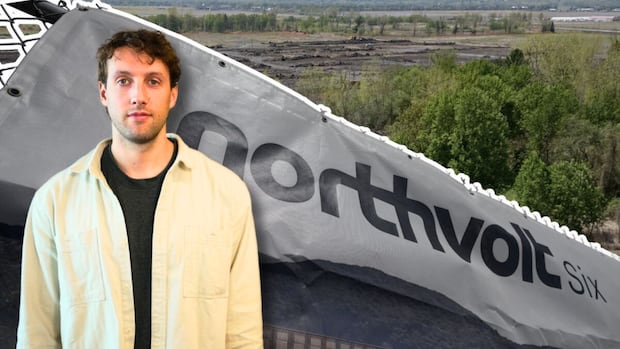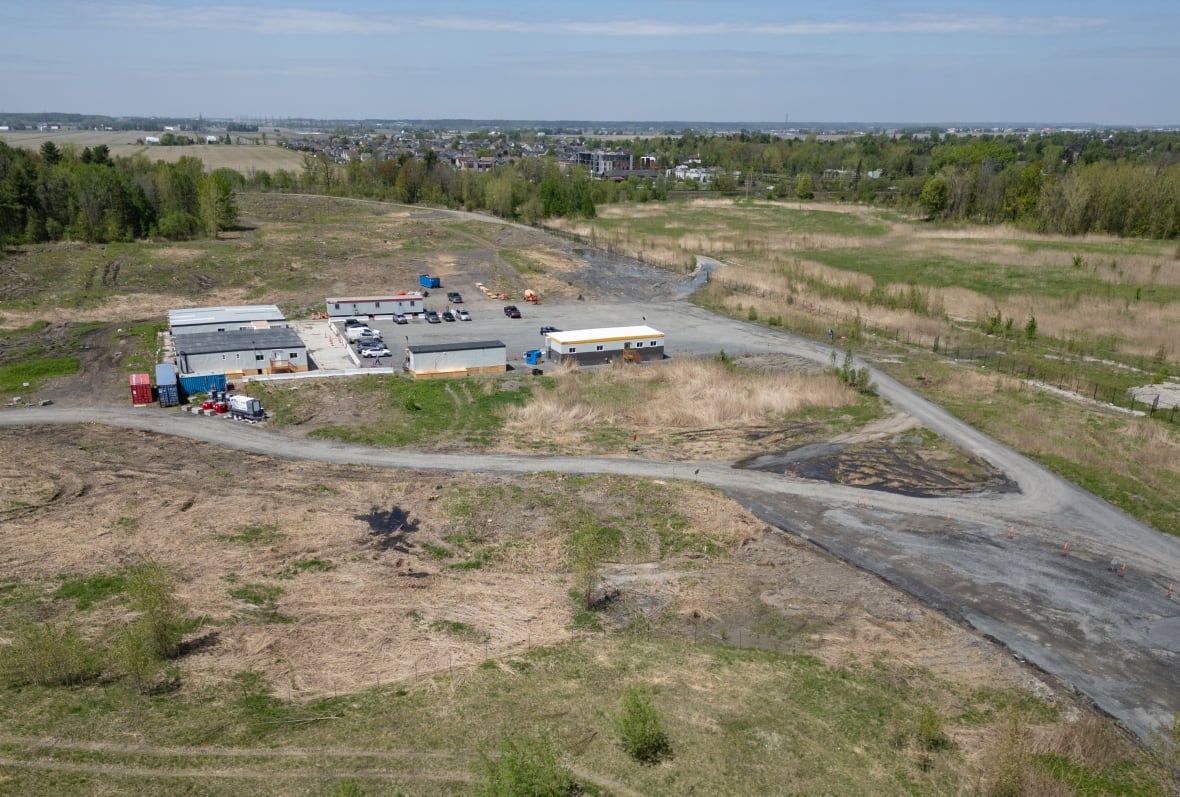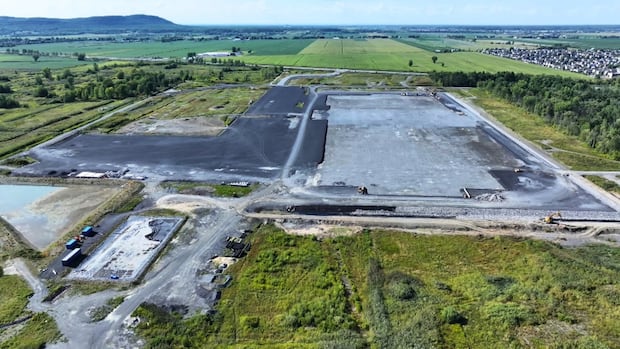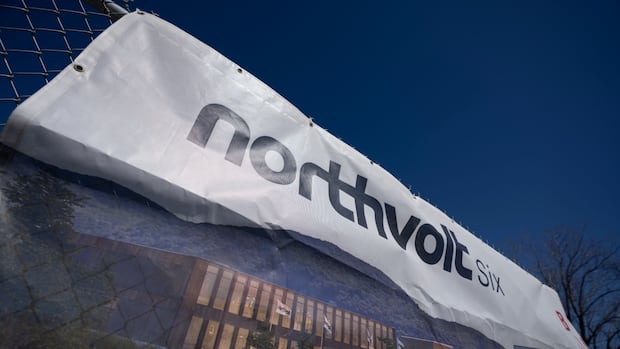In September 2023, Prime Minister Justin Trudeau and Quebec Premier François Legault stood on a Montreal stage alongside Northvolt executives and announced what they called a “historic” partnership: a plan to build a new mega-factory on Montreal’s South Shore.
It was to be called Northvolt Six — a plant that would churn out electric vehicle batteries, create 3,000 jobs and contribute more than $1 billion to the economy.
Both the provincial and federal governments rolled out the red carpet for Northvolt, a Swedish company, to woo them into choosing Quebec for their first major factory outside of Europe.
Canada and Quebec said they would commit billions of dollars — both in direct investments and other incentive programs — to help the project come to fruition, and Quebec changed its own rules on environmental assessments, which expedited the plant’s approval.
Batteries were supposed to be coming off the assembly line in 2026. Instead, the project is dead in the water. Quebec announced this week that it was ceasing further funding for the battery plant.
So, what went wrong? A lot. Let’s start at the beginning.
WATCH l Unpacking why the project failed: 
How the biggest private investment in Quebec’s history went bust
In 2023, the provincial government announced a partnership and a $510-billion investment with Swedish startup Northvolt to build an EV battery plant. But only two years later, Quebec pulled the plug on the multibillion-dollar factory. We broke down what went wrong. A promising company
Northvolt was formally established in 2016 in Stockholm, Sweden. Founded by two former executives at Tesla Motors, it touted itself as a pioneer of sustainable battery production — with a focus on batteries for electric vehicles.
In its first few years, the company attracted billions in investment from big players, including the European Investment Bank, Goldman Sachs and car manufacturers BMW AG and Volkswagen Group.
The company started building its first factory, in Skellefteå, Sweden in 2019, and that same year, began planning another factory in Germany.
In 2023, when the Quebec factory announcement came, the company appeared to be doing well. It said it was delivering batteries at the Skellefteå plant and employed 5,000 employees at its facilities around the world.
 Prime Minister Justin Trudeau and Quebec Premier François Legault, centre, pictured in 2023 alongside Northvolt executives following an announcement that Northvolt Batteries North America would build a mega-factory near Montreal. (Christinne Muschi/The Canadian Press)Cracks start to show
Prime Minister Justin Trudeau and Quebec Premier François Legault, centre, pictured in 2023 alongside Northvolt executives following an announcement that Northvolt Batteries North America would build a mega-factory near Montreal. (Christinne Muschi/The Canadian Press)Cracks start to show
In December 2023, months after the Quebec factory announcement, Swedish media began reporting that the company faced billions in losses and low battery production.
In 2024, the company announced an operating loss of $1.4 billion and laid off 1,600 people, mostly at the Skellefteå factory. It also paused or discontinued some of its expansion projects — it had tried to develop advanced battery technology and new battery recycling methods.
The same year, one of its major partners BMW AG backed out of a $2.9-billion battery order because of quality concerns.
The company, and Quebec government officials, insisted the layoffs didn’t affect the Quebec project, where early work was already underway. Quebec’s economy minister at the time, Pierre Fitzgibbon, even suggested that the discontinuation of other Northvolt projects could lead to more jobs being created in Quebec.
But things were not going smoothly in Quebec either.
Environmental groups brought court challenges and protested against the construction of the plant, which they said damaged wetlands and felled important trees.
 An aerial view of the land that was slated to be developed by Northvolt in Saint-Basile-le-Grand, east of Montreal. The Quebec government is still hoping to get back the land itself. (Christinne Muschi/The Canadian Press)
An aerial view of the land that was slated to be developed by Northvolt in Saint-Basile-le-Grand, east of Montreal. The Quebec government is still hoping to get back the land itself. (Christinne Muschi/The Canadian Press)
The Quebec government also sparked controversy for circumventing certain environmental evaluations like a review by the Bureau d’audiences publiques sur l’environnement (BAPE), which Northvolt said would have fatally delayed the project.
Nevertheless, work continued on the site and before long, it was cleared of trees. But the factory complex never materialized.
Bankruptcy
In November 2024, Northvolt first filed for Chapter 11 bankruptcy protection in the United States, saying it lacked the cash to continue operating. It secured some funding, sold some assets and shrank its business, but said it would continue developing battery cells.
Then, in March 2025, Northvolt, the parent company of Northvolt North America, which was responsible for the Quebec project, filed for bankruptcy in Sweden.
That meant suddenly, the money invested in the company by the Quebec government, and other institutional investors, including Quebec’s public pension fund, was essentially valueless.
Still, politicians insisted the Quebec battery plant remained alive. Northvolt said its North American operations were solvent.
But behind the scenes, Quebec’s new economy minister, Christine Fréchette, said she had given Northvolt North America a deadline of Sept. 1 to present a new plan for the Quebec site.
A day later, she made the announcement on X, saying in a statement that the Quebec government wanted no further part in the Northvolt factory and was pulling out of its funding commitments.
The company won’t touch any more of the billions of dollars in spending commitments announced in 2023.
WATCH | What’s next now that the Northvolt project is dead? 
What’s next for the Northvolt site now that Quebec abandoned the battery plant project?
Groups who raised concerns about the project in the past are questioning what will come next, while the province’s economy minister argues there is significant value in the land in its current state.
In a statement, Northvolt North America said it wished to underscore that its North American operations are not in bankruptcy and still has “substantial resources to relaunch the project.”
“This decision is deeply regrettable for Northvolt North America, particularly given the significant efforts already made —and still ongoing — to identify a buyer, alongside the diligent management of our finances,” the statement said.
Quebec looks to recover $260M
As for the money Quebec had already committed to the project, its $270-million investment in Northvolt is now worthless, but the government has been able to reclaim almost $200 million it had spent on the land for the Northvolt factory and still hopes to get the land itself.
The province says the total debt owed to it is worth $260 million with interest.
Finally, a judge declared Northvolt North America insolvent on Friday and the company laid off its entire workforce.
In an interview with Radio-Canada’s Patrice Roy, Fréchette, the province’s economy minister, gave her assessment of what went wrong with the company.
“I think the business got involved in too many products. It spread itself too thin,” she said. “A lesson, also, to take from this, probably, is that it was a young company, less than 10 years old, and it maybe should have concentrated on one sole activity.”

